Read the story that accompanies this photo essay, “In the City, Off the Map: San Franciscans Struggle to Keep Their Mobile Residences,” which is part of the “Driving Home: Surviving the Housing Crisis” project. Lee esta historia en español.
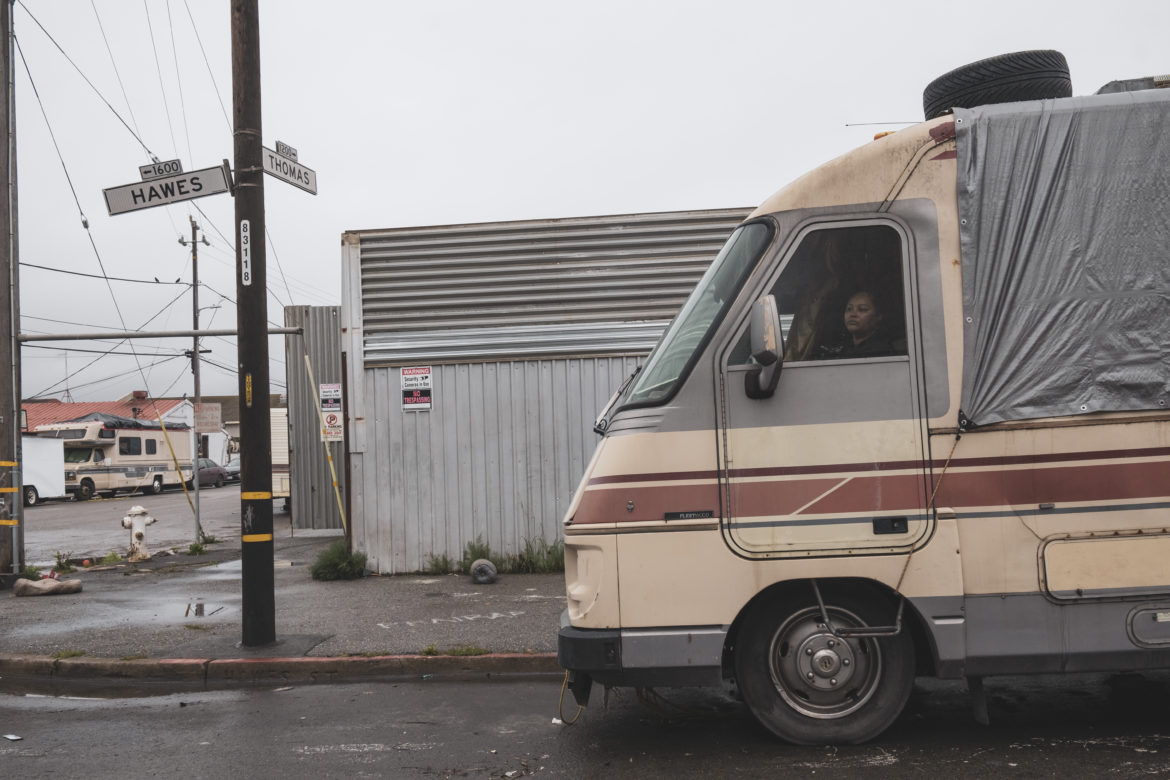
Yesica Prado / San Francisco Public Press and CatchLight Local
Tantay Tolbert surveys the street for parking options from the driver’s seat of her recreational vehicle. On this morning, Tolbert received a 72-hour notice to move the vehicle or it would be towed. She parks in an industrial part of Bayview-Hunters Point in San Francisco’s District 10, which is home to an estimated 45% of vehicle dwellers citywide.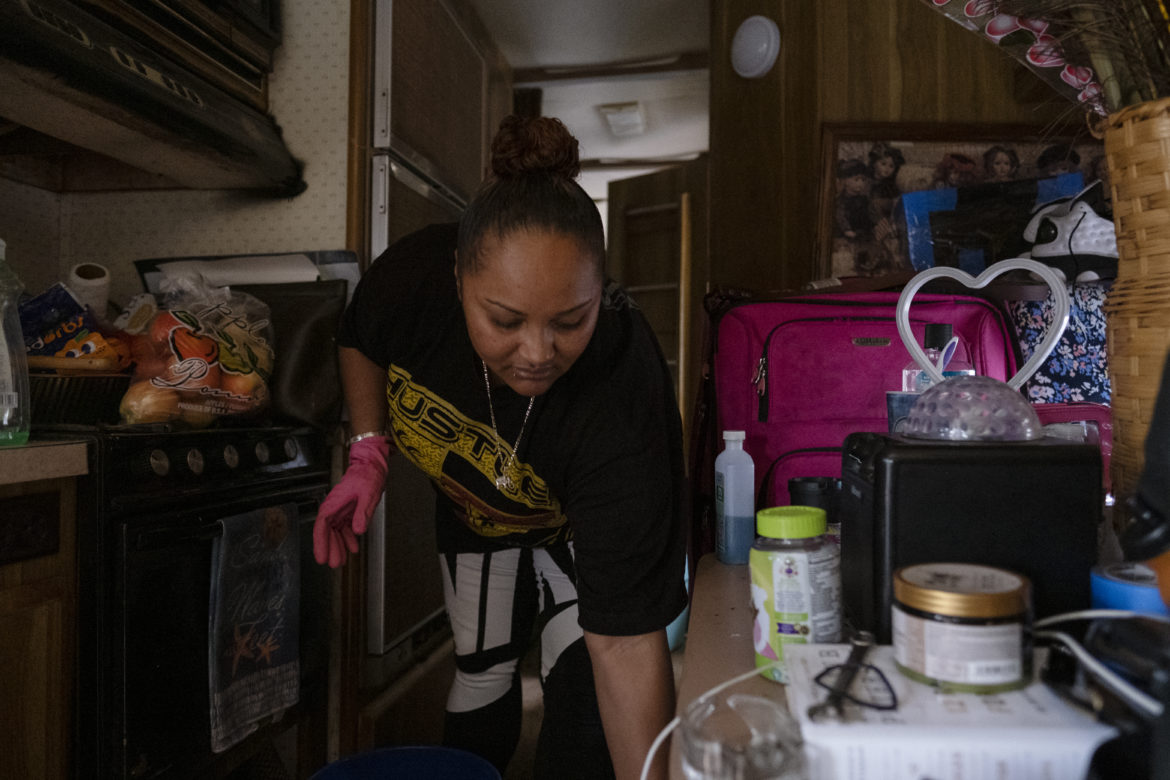
Yesica Prado / San Francisco Public Press and CatchLight Local
On this morning, Tolbert prepares a bucket of water to scrubs the shower inside her recreational vehicle. She takes care of her home and is grateful to have a place to call her own. “In Las Vegas, there’s people living in tunnels,” she said. “Our little RV is a mansion. We are living like kings and queens compared to them over there.”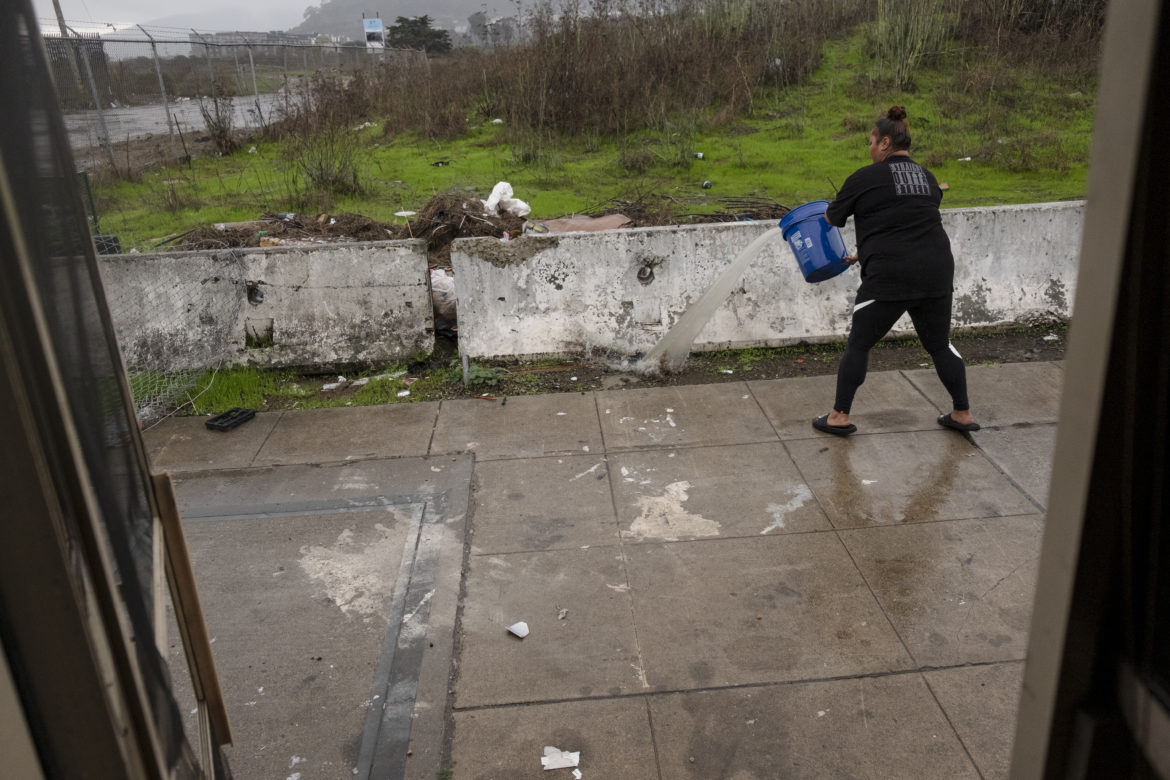
Yesica Prado / San Francisco Public Press and CatchLight Local
It is difficult for Tolbert to get to a facility where she can pump dirty water from her RV’s holding tank. Instead, she often throws it onto the grass to save space in her 30-gallon tank.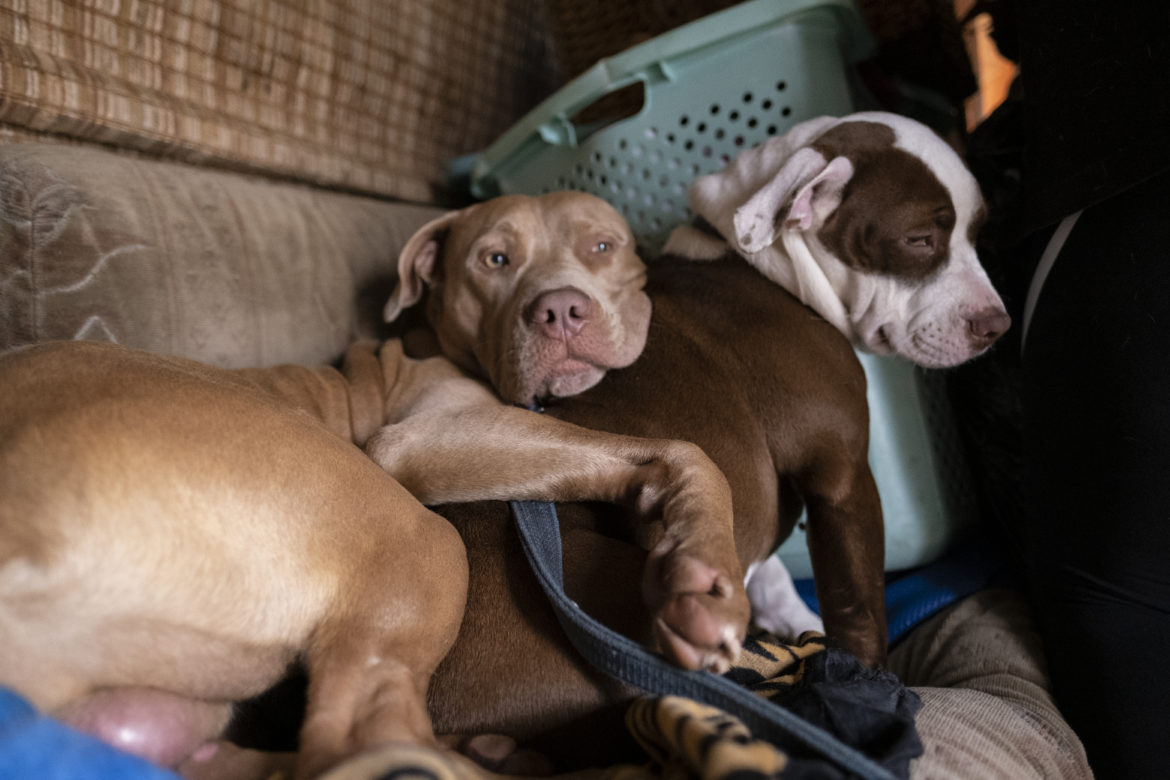
Yesica Prado / San Francisco Public Press and CarchLight Local
Bosco embraces Bonnie as they lounge on Tolbert’s couch. Tolbert’s door does not lock, so her pit bulls guard the vehicle while she is at work.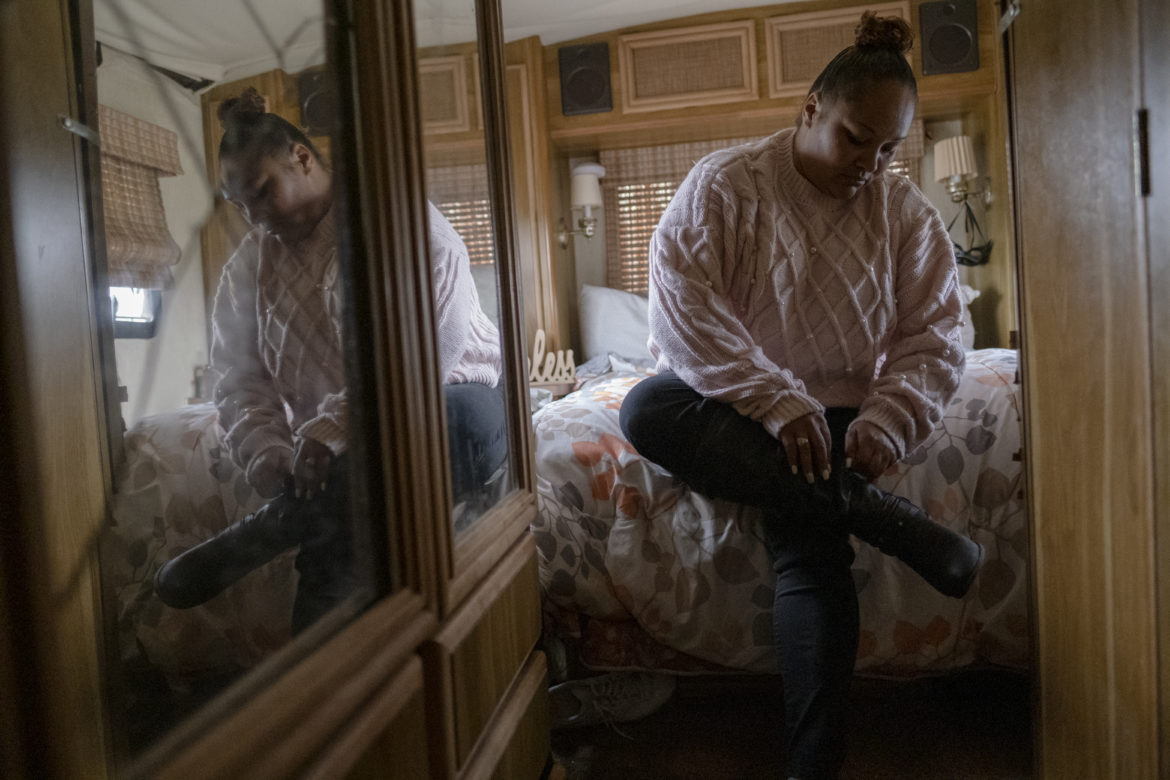
Yesica Prado / San Francisco Public Press and CatchLight Local
Tolbert gets dressed and does her curly hair for an afternoon work meeting. Tolbert says the RV “is a stepping stone because I want housing.” She is looking for a place costing no more than one-third of her income.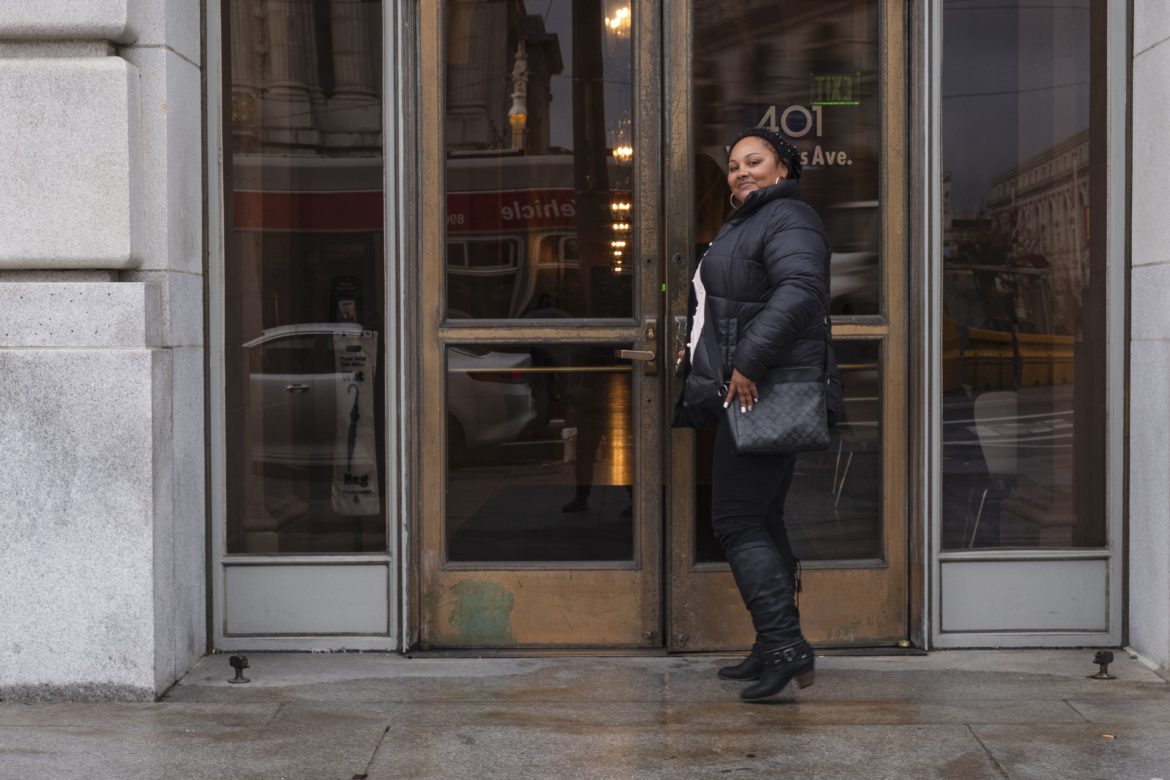
Yesica Prado / San Francisco Public Press and CatchLight Local
Tolbert attends a meeting in the Civic Center. She works part time for nonprofit Urban Alchemy, cleaning elevators at the BART station, and makes steady money.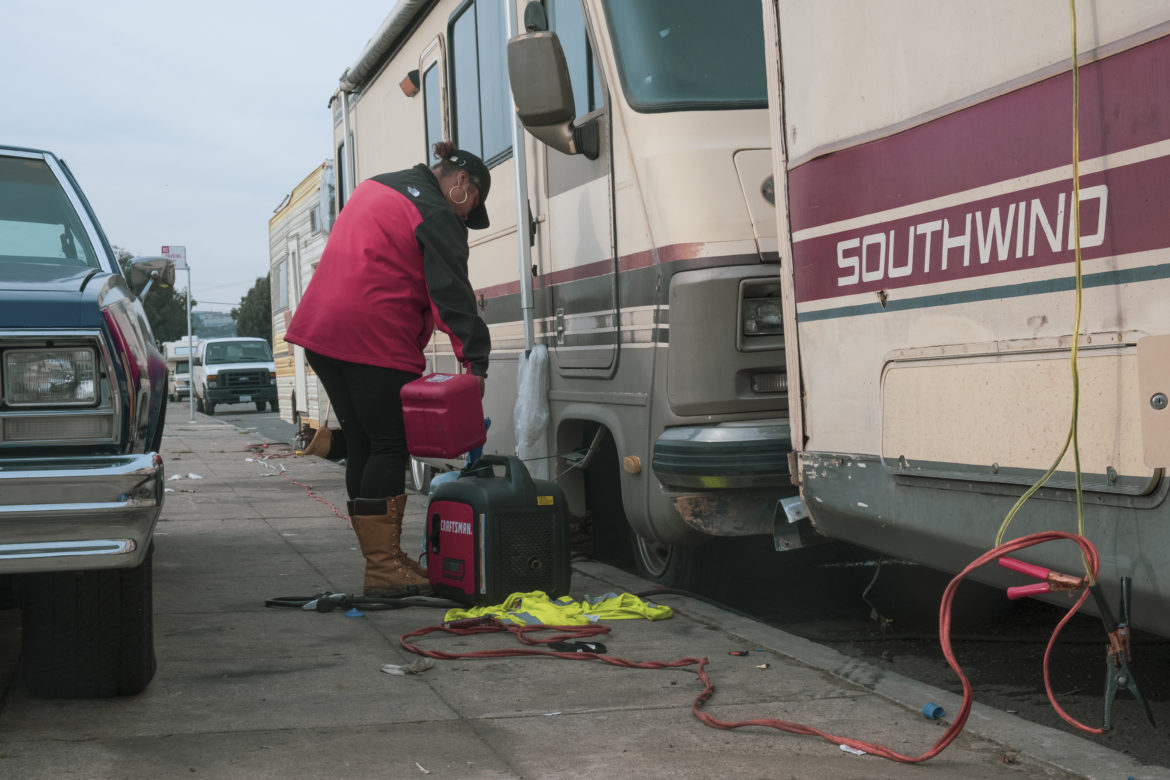
Yesica Prado / San Francisco Public Press and CatchLight Local
Tolbert gases up her generator, which she uses to power the amenities inside her RV each day. This lets her use kitchen appliances, water pump, lights and a heater while recharging the vehicle’s batteries for the night. Tolbert shares the generator with people living in vehicles parked near her. On the streets, she said, people “don’t get thought about, period.” But through the experience, many become strong after being torn down or neglected by others. “You figure out that you are worth it, in all the hard ways. And that’s just how it is,” she said. “But you are worth it. Y’all don’t know your value.”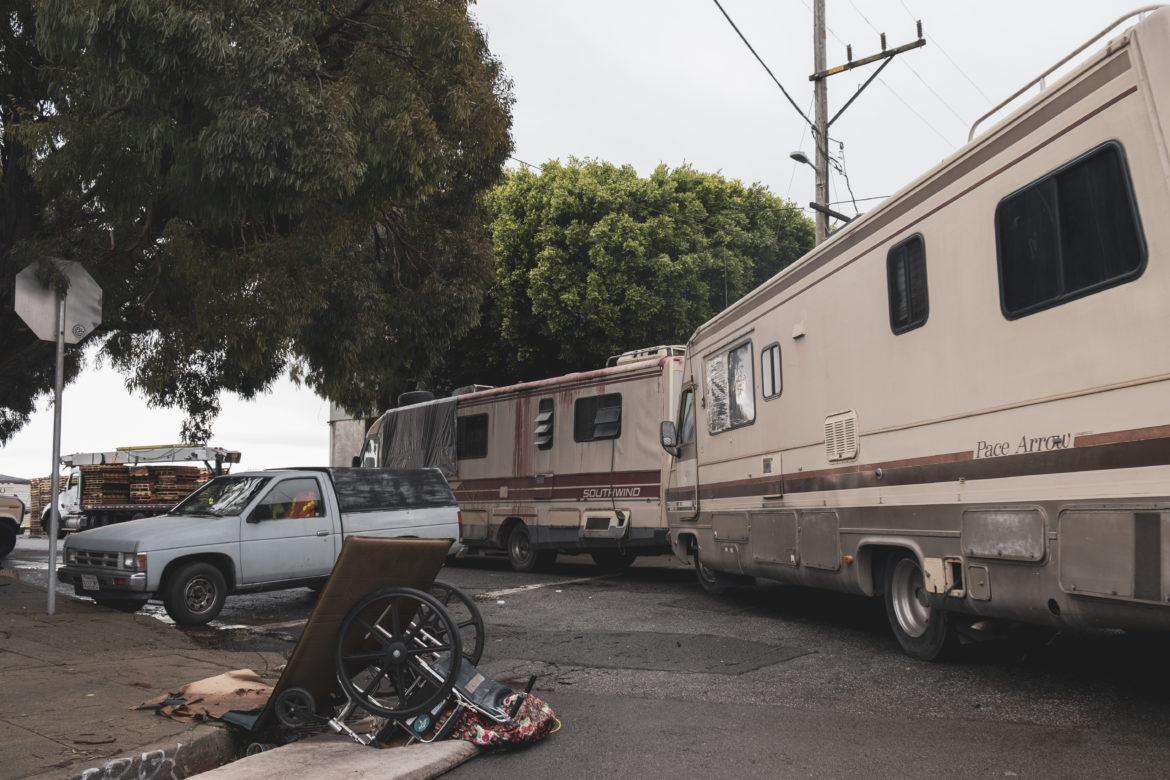
Yesica Prado / San Francisco Public Press and CatchLight Local
Since November, Tolbert’s vehicle has been in disrepair and does not start. To move it, she relies on risky do-it-yourself methods such as having a second vehicle push her from one parking space into another to avoid citations.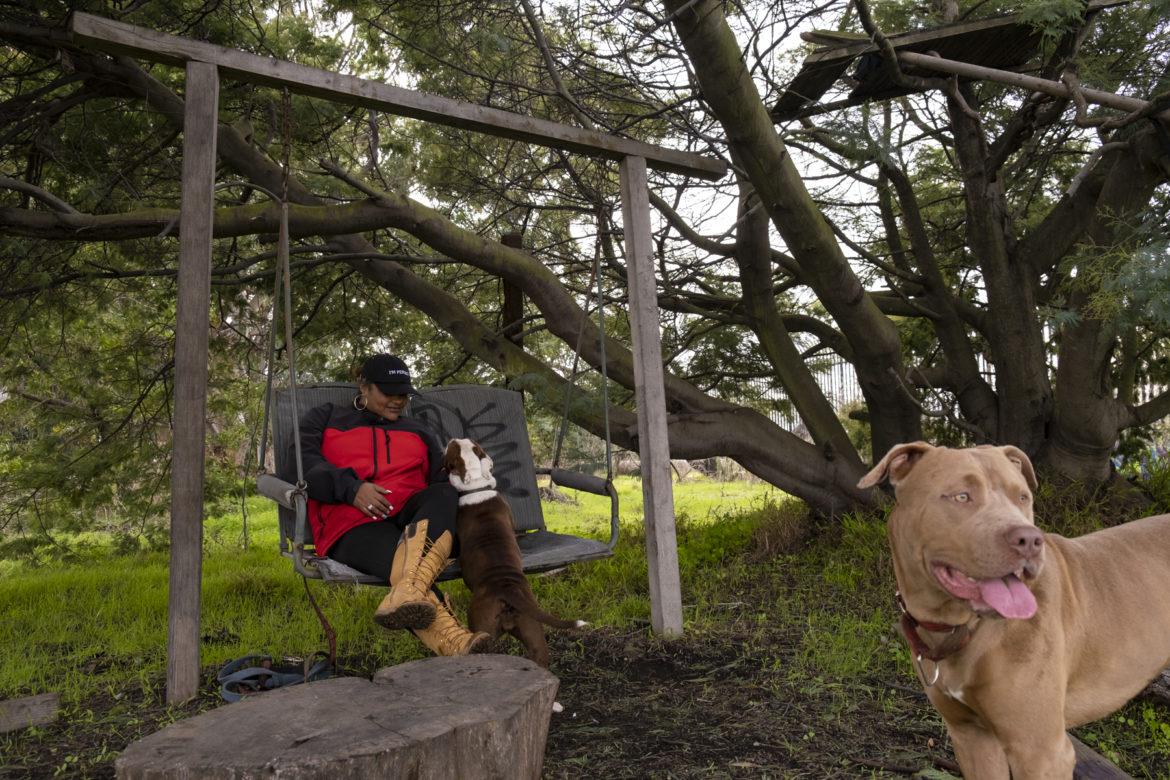
Yesica Prado / San Francisco Public Press and CatchLight Local
Tolbert and her pit bulls Bonnie and Bosco visit the North Shore Yosemite Slough Park. Her daily routine is to let her dogs run free in the fields while she watches the peach-colored sunsets.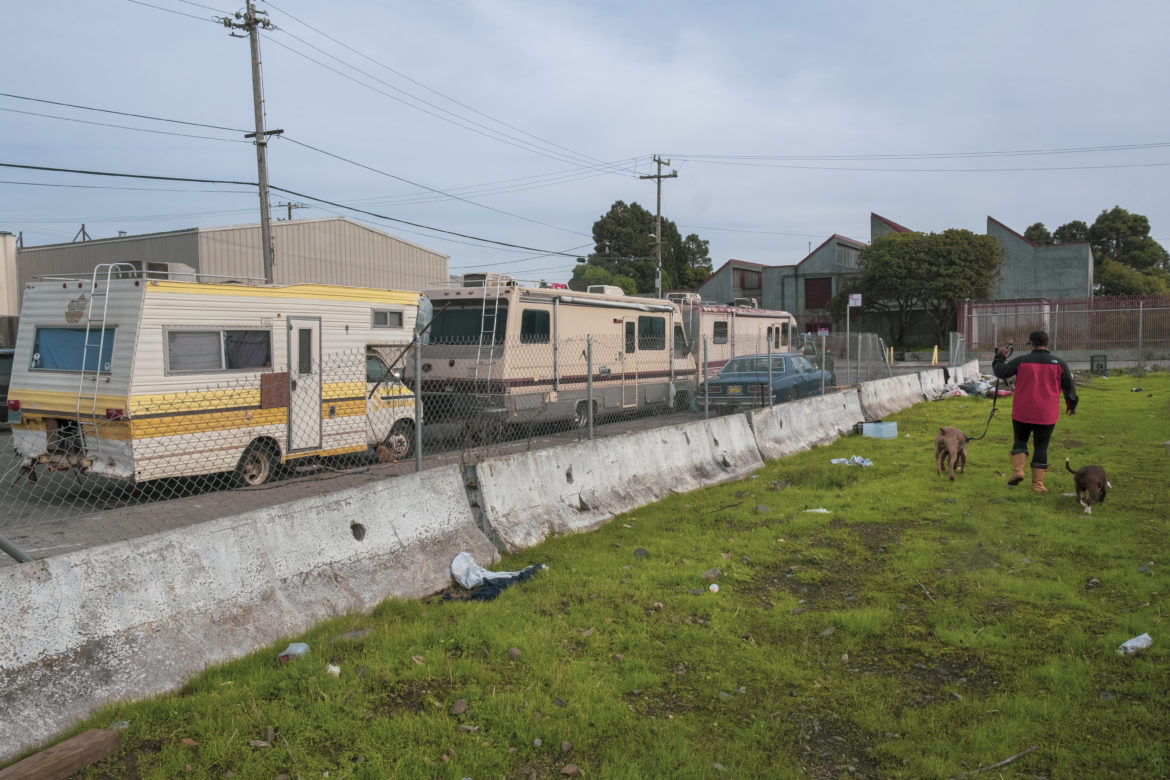
Yesica Prado / San Francisco Public Press and CatchLight Local
Tolbert parks her RV among others along North Shore Yosemite Slough. She grew up nearby in Bayview with her mother and four siblings. Tolbert tries to park as far as possible from businesses and occupied houses, to avoid complaints. But after living on this dead-end block for months, she saw several “No Parking Anytime” signs appear. Tolbert continues to park there until asked to move.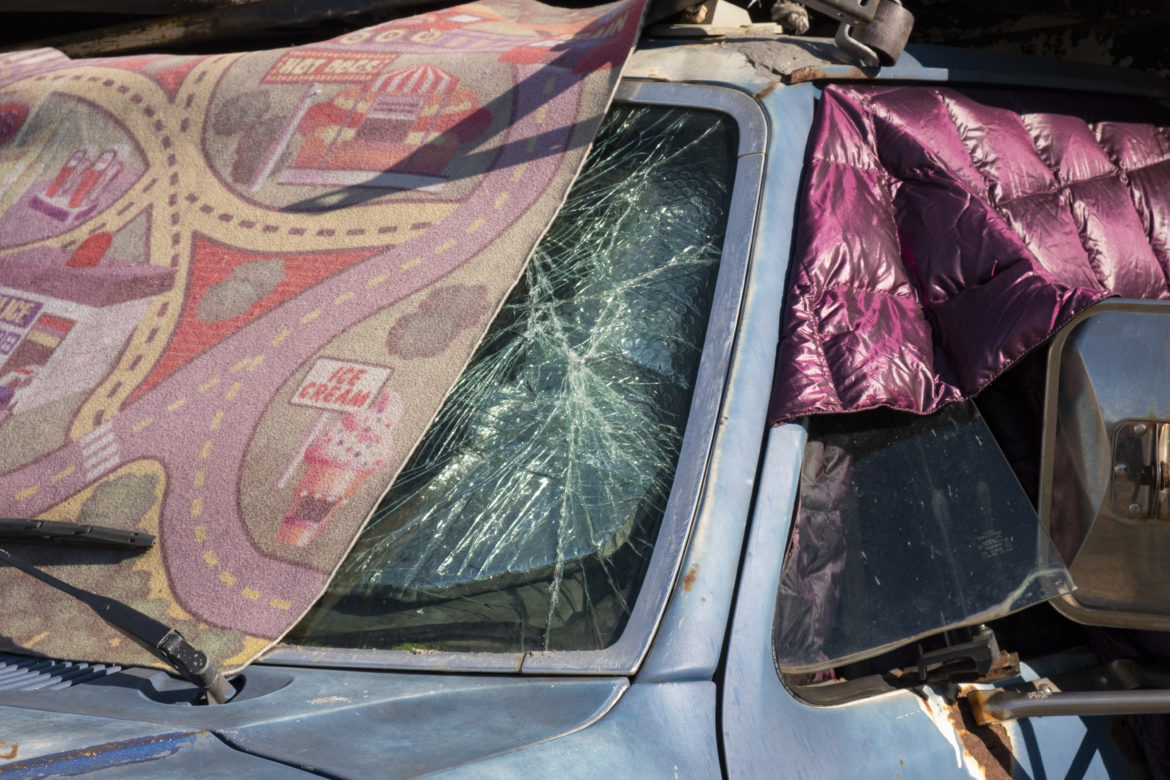
Yesica Prado / San Francisco Public Press and CatchLight Local
A vehicle home is parked in Bayview. In San Francisco, biennial counts have tracked a rise in people living in vehicles. In 2015, 13% of the homeless were observed living in vehicles. That fraction rose to 28% in 2017 and to 35% in 2019.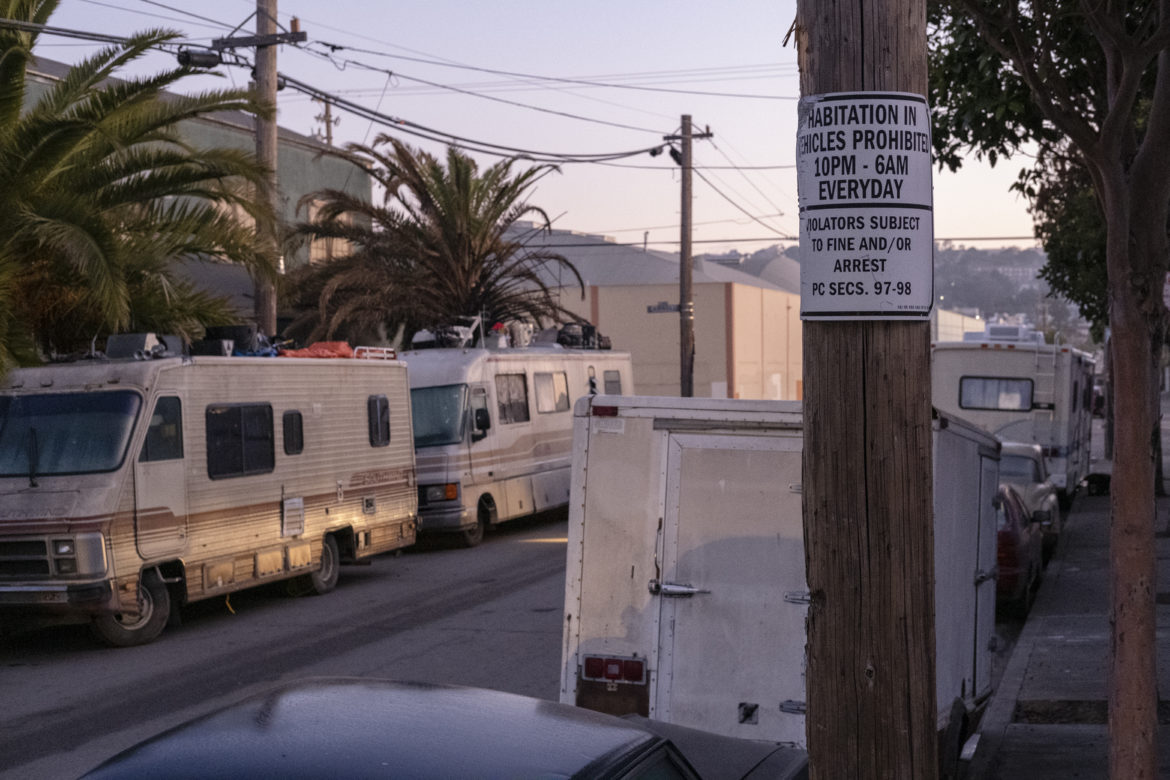
Yesica Prado / San Francisco Public Press and CatchLight Local
A vehicle home is parked in Bayview. In San Francisco, biennial counts have tracked a rise in people living in vehicles. In 2015, 13% of the homeless were observed living in vehicles. That fraction rose to 28% in 2017 and to 35% in 2019.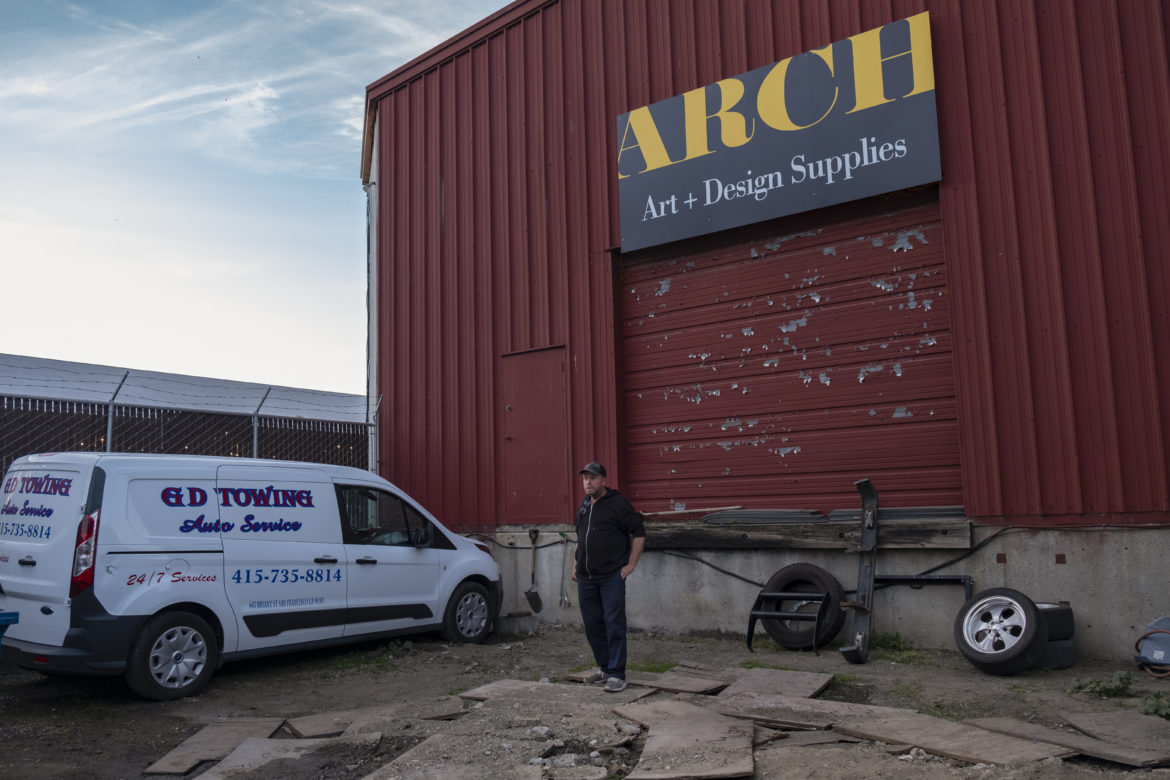
Yesica Prado
Gregory Nelson stands on the empty lot where he used to park his neon green recreational vehicle — The Chieftain — at Larry’s Tow Yard. The new owner of the building did not want anyone living in vehicles on the premises, and left Nelson a voice mail asking him to remove his vehicle. While Nelson no longer lives or works there, his former coworkers run a new towing business there, G.D. Towing. They allow him to use the yard’s office to charge his devices, dispose of trash, access water and use the restroom. When Nelson first acquired the RV, he wasn’t quite thrilled about it. “I was stepping into homelessness, even if it’s on the good side of the fence,” he said. “I wouldn’t feel any better if I would live in an RV park. I mean, if I choose to do it, I would have no problem. But it was like I was thrown into it, and I was rebuilding it, and hating it, and feeling the pain.”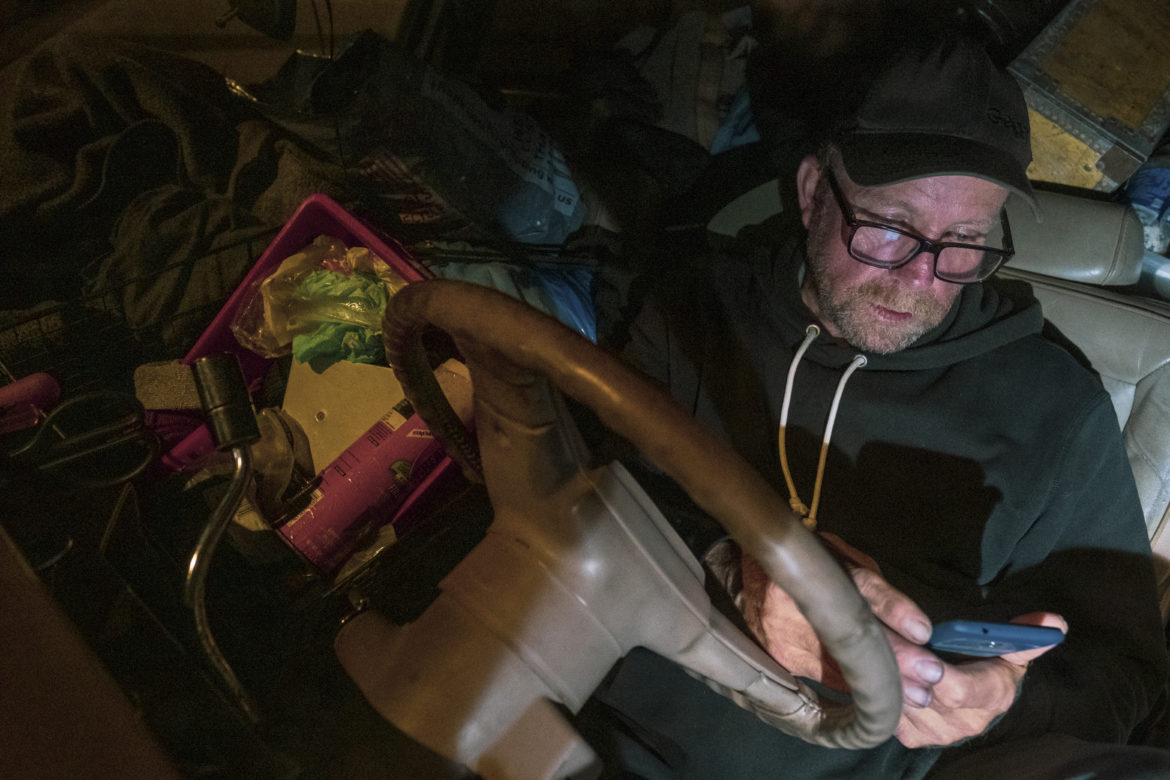
Yesica Prado / San Francisco Public Press and CatchLight Local
Gregory Nelson’s home is a 1986 Cadillac. For years, Nelson lived in an RV on the grounds of Larry’s Towing, his former employer, where his boss did not charge rent. “Ron is a saint. There’s no other boss in the world,” said Nelson. In exchange, Nelson kept an eye on the place at night. Due to health issues, Nelson later lost that job along with constant access to the yard. So he bought the car — a vehicle less likely than an RV or van to attract attention on San Francisco streets. City regulations prohibit living in a sedan in residential areas.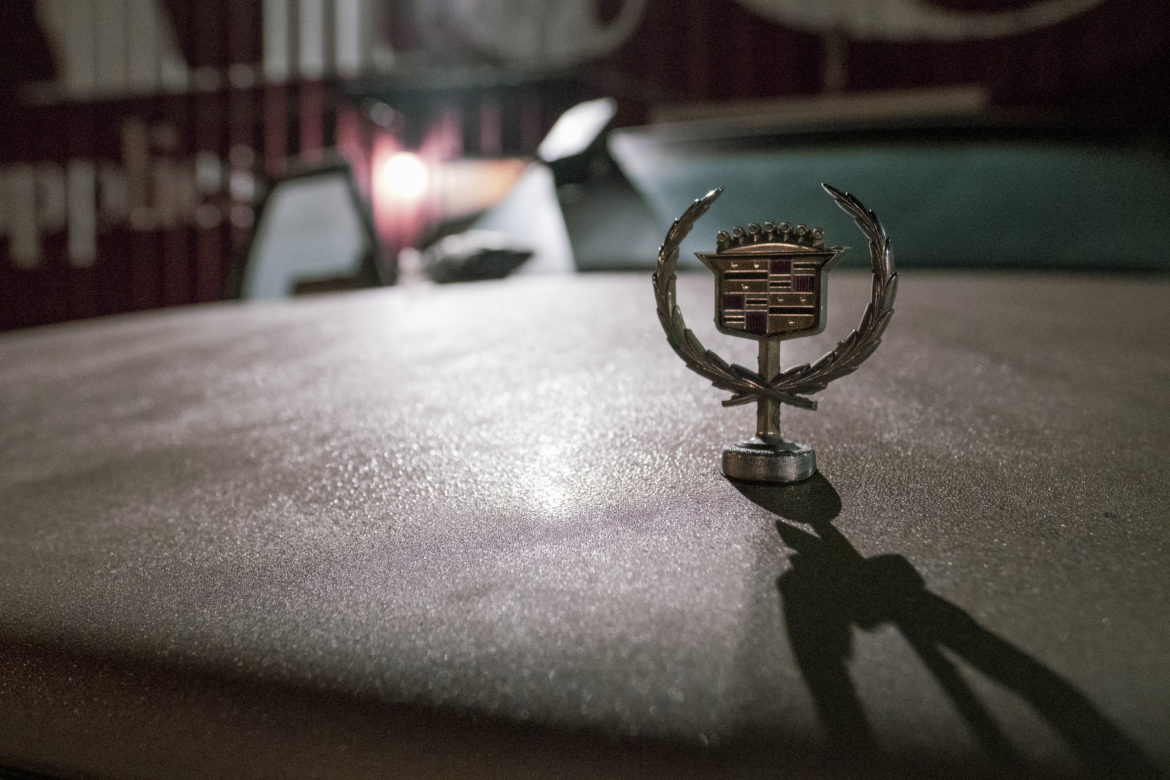
Yesica Prado / San Francisco Public Press and CatchLight Local
Nelson has always owned a Cadillac. It’s part of his identity. His enthusiasm for the brand earned him the nickname “Cadillac Greg.” But this is the first Cadillac Nelson, 64, has lived in. He was relieved to acquire it, considering the alternatives. His other option: “I would be living in a tent,” he said.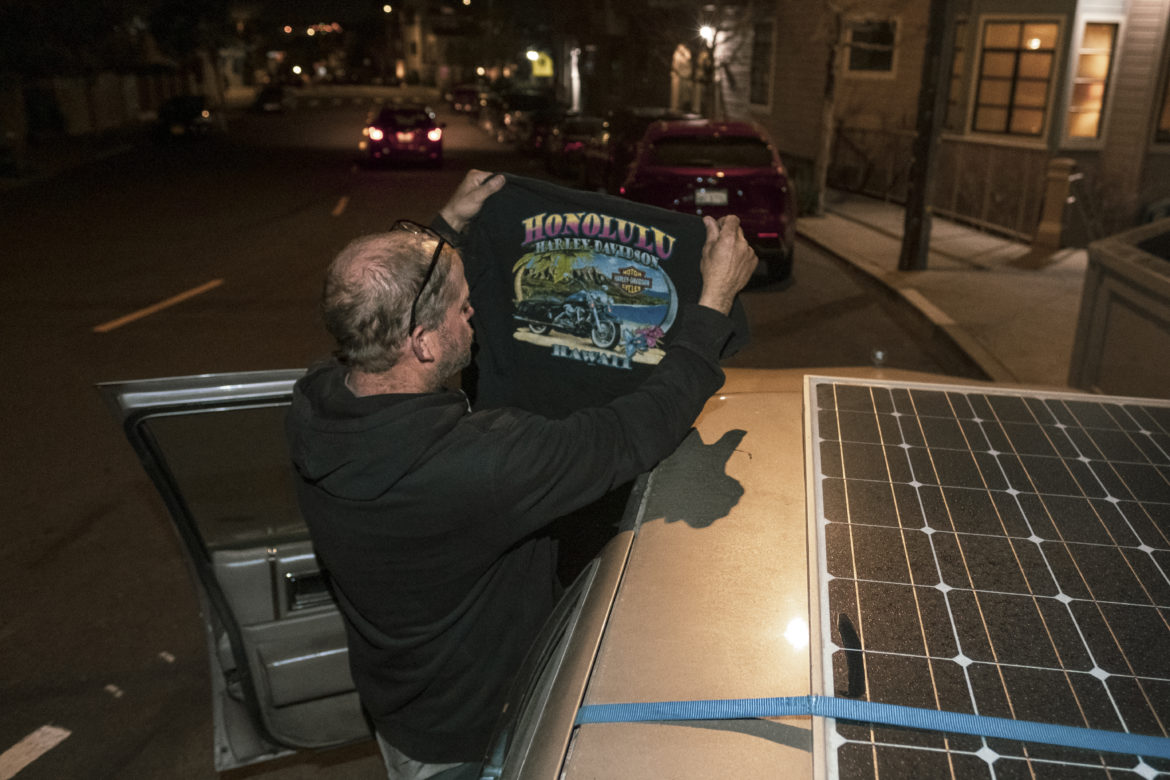
Yesica Prado / San Francisco Public Press and CatchLight Local
Nelson does not keep his vehicle near the tow yard because streets nearby are subject to regulations that prevent long-term parking. So he finds parking high on Potrero Hill. On this night, Nelson looks through his clean laundry for a shirt. He pulls out a souvenir T-shirt from an old vacation. After a divorce, his ex-wife kept the house. So he traveled to Hawaii to escape his problems and weigh options. Back in San Francisco, his first home on wheels was the RV.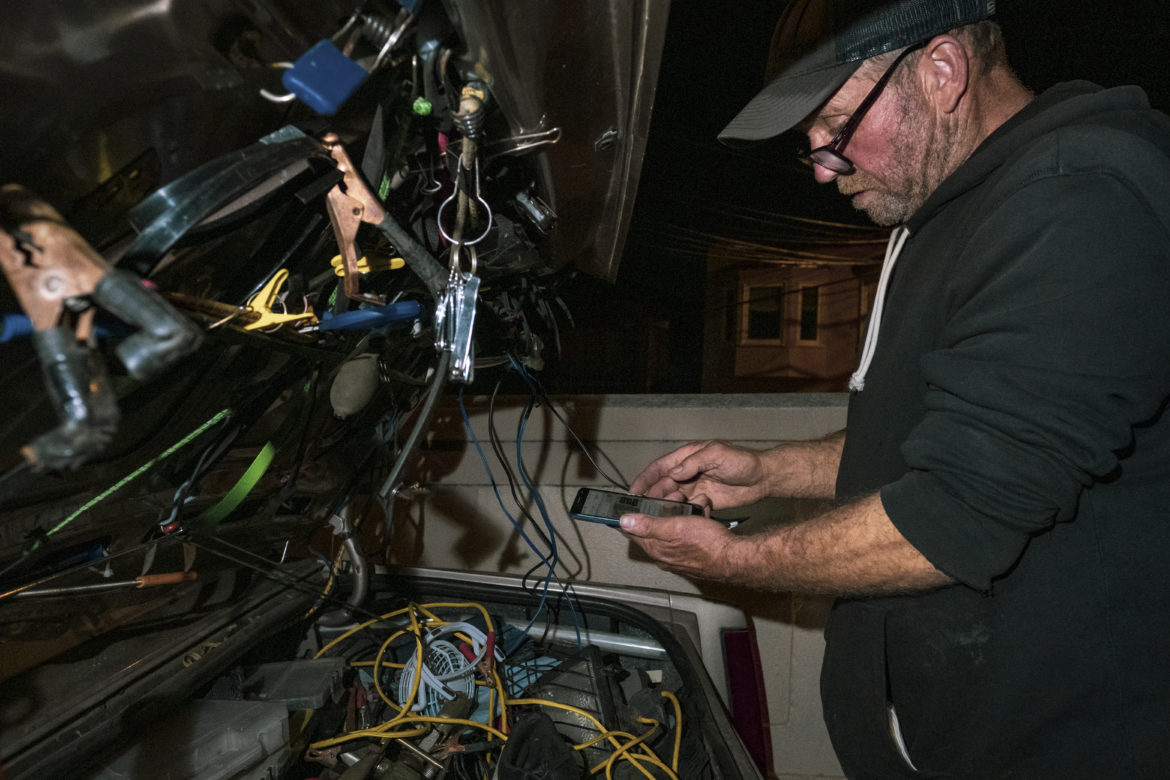
Yesica Prado / San Francisco Public Press and CatchLight Local
Nelson rearranges the back of his car and recharges his phone. He sleeps on four stacked blankets in the back seat. Sometimes he folds down the seat to stretch his legs into the trunk. He has attached a solar panel to the roof to power essential electronics. “The key to the solar deal is storage,” Nelson said. “I have two batteries separate from the car, so I can run a television, a DVD player and charge up my phone. Now the next question is: How long can I run it for? I would be good for an hour or two. Anything crazy and heavy like a microwave or refrigerator is going to eat you up really quick.” But bad wiring inside his trunk has proven hazardous. One afternoon while Nelson was charging his devices, an electrical short melted the plastic of the cigarette lighter plug and filled his car with smoke. “I’m lucky I didn’t kill myself,” he said.
Yesica Prado / San Francisco Public Press and CatchLight Local
On a Sunday morning, Nelson cleans his car, cooks and does chores at the tow yard. He uses his own laundry machine, which he purchased online for $100. Nelson says, it “saves me money in the long run.”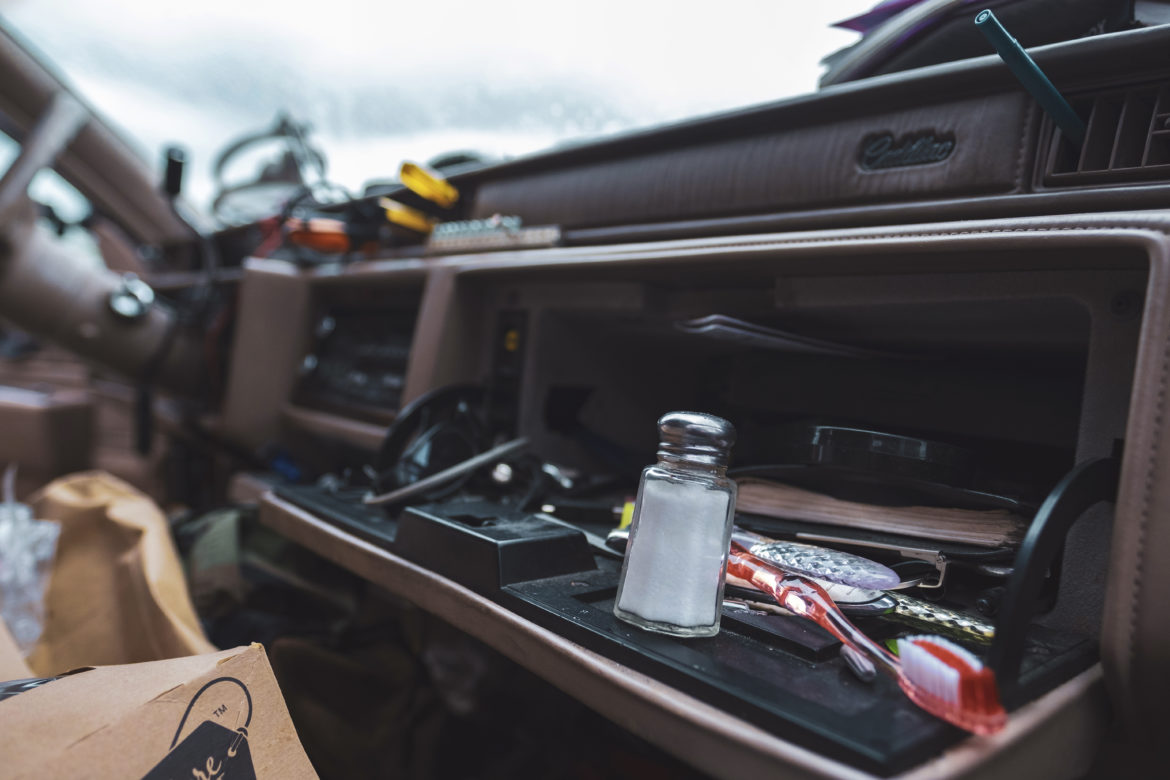
Yesica Prado / San Francisco Public Press and CatchLight Local
Amid the clutter, Nelson has dedicated places to store everyday essentials. The glove box serves as a nightstand that holds toothbrush, glasses, address book and condiments for his next meal.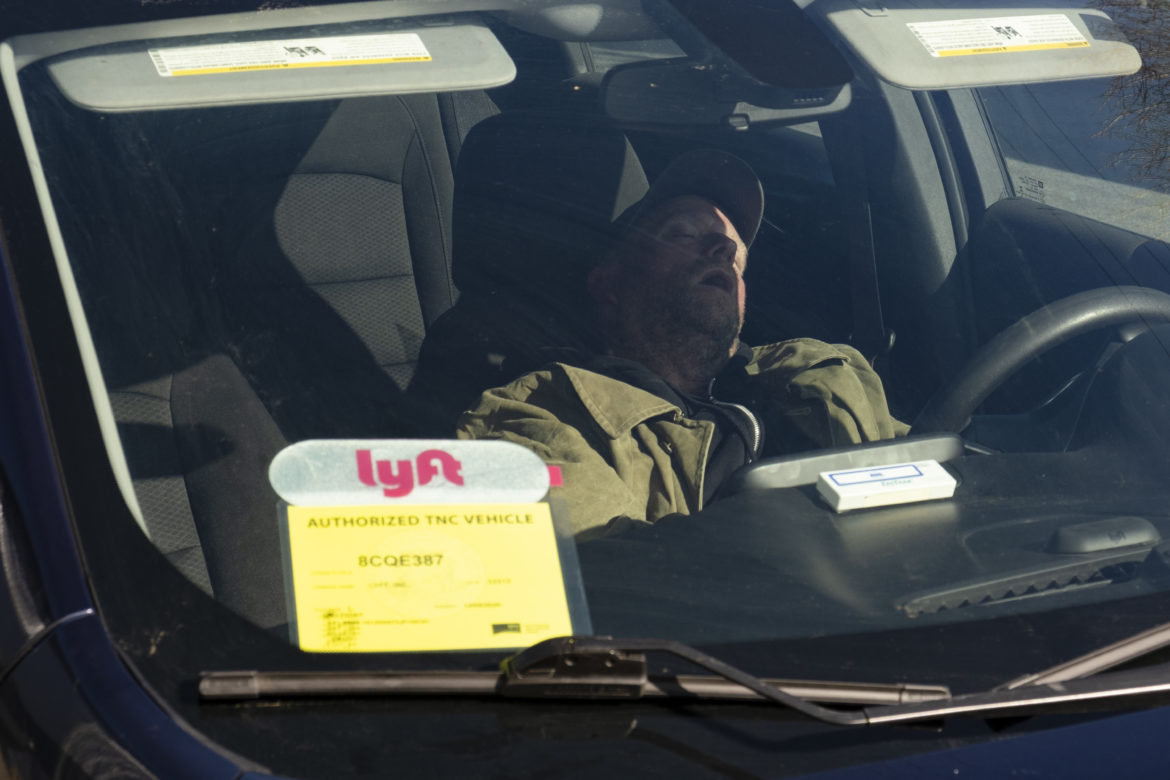
Yesica Prado
On a Saturday morning, Nelson sleeps inside his rented Lyft vehicle after an evening shift in the city. In late December, he began working for the ride-hailing company, helping him pay bills and buy food. The driving gig also helped him access resources and amenities around the city: restrooms, showers, laundry and electricity.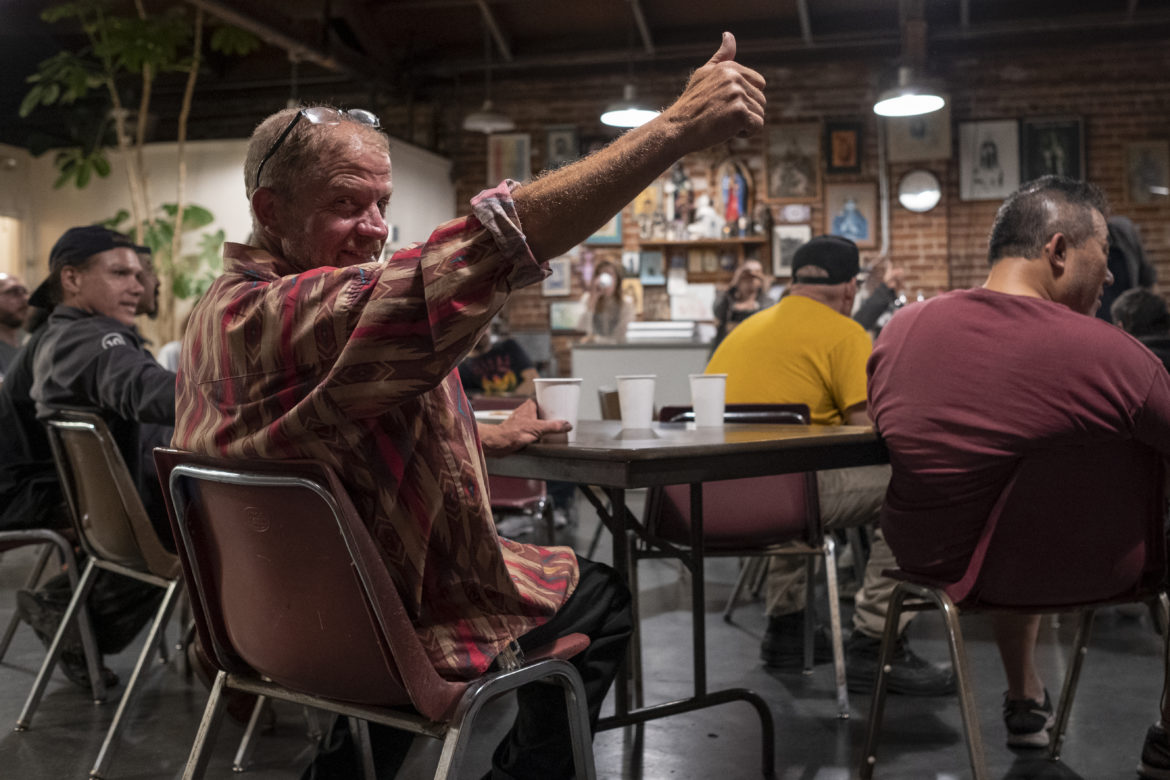
Yesica Prado / San Francisco Public Press and CatchLight Local
Nelson attends an organizing meeting for vehicle residents hosted by the Coalition on Homelessness at Martin de Porres House of Hospitality. The Coalition connects with vehicle residents in hopes of forming a grassroots coalition to defend their right to housing.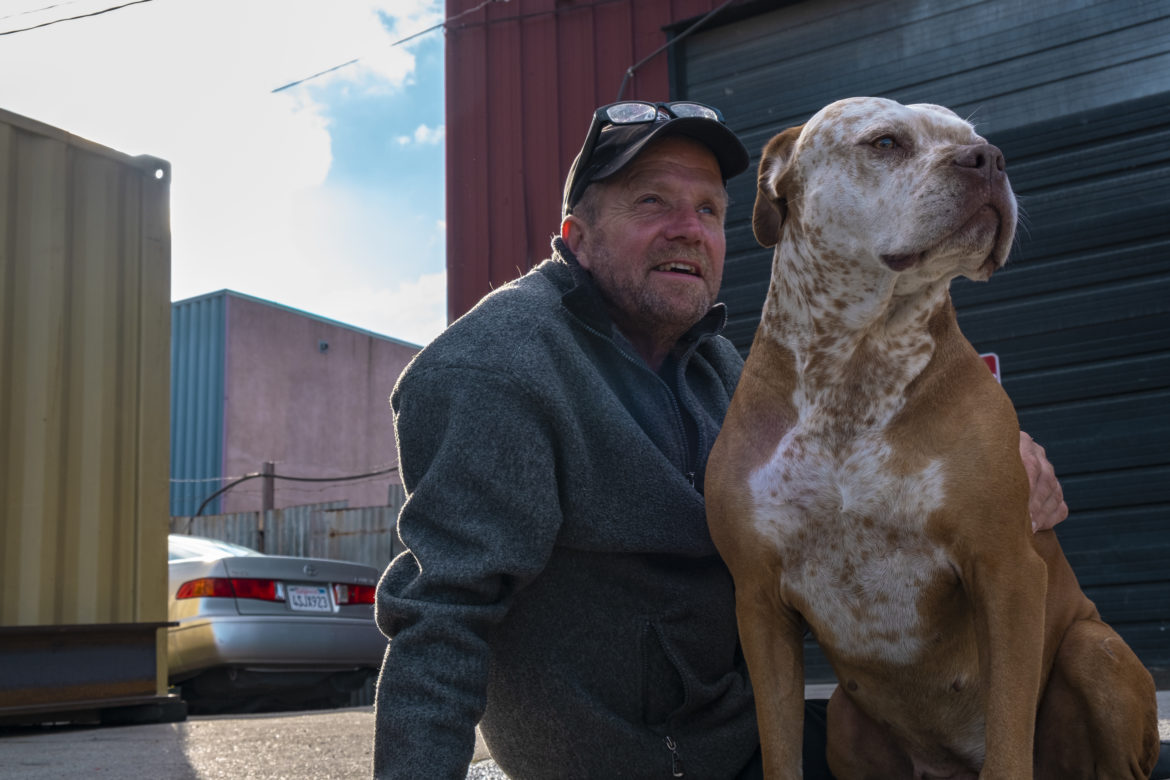
Yesica Prado / San Francisco Public Press and CatchLight Local
Nelson communes with April, the tow yard’s guard dog. He enjoys practicing his Spanish with April. They often play together and watch over the premises at night.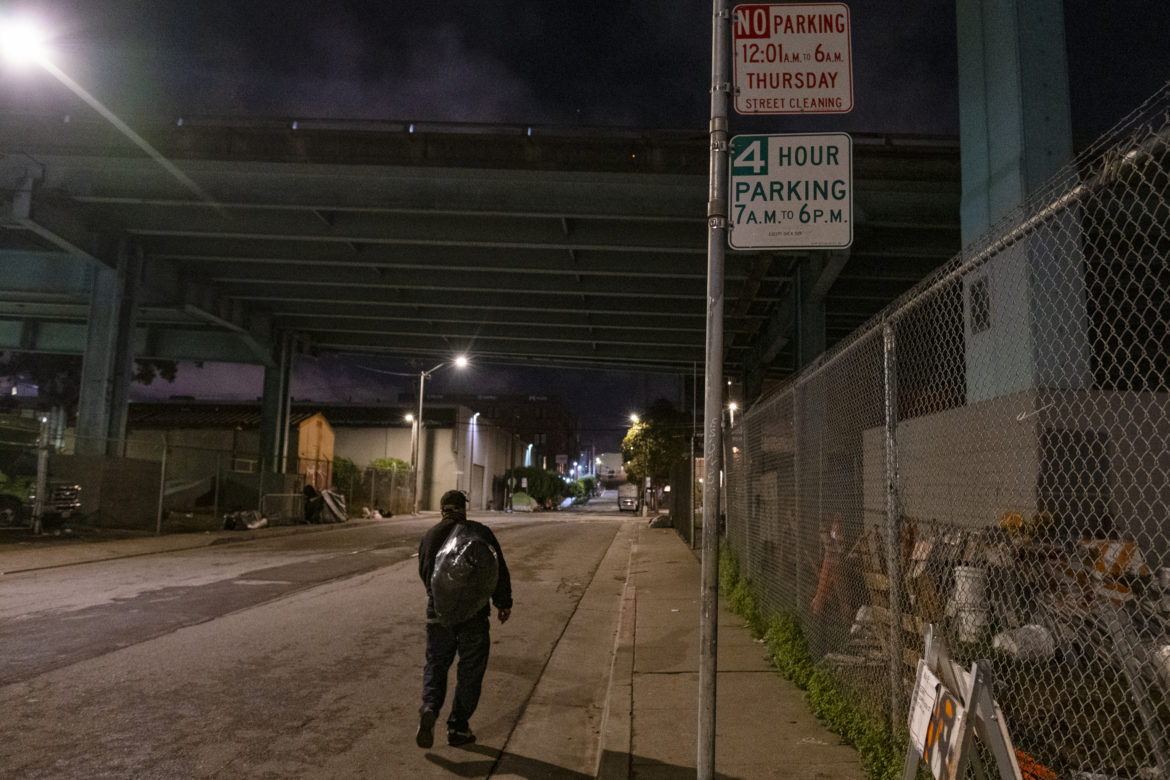
Yesica Prado / San Francisco Public Press and CatchLight Local
Nelson carries wet laundry to dry at a laundromat. Leaving the Cadillac with his belongings on Potrero Hill, he walks for miles to take care of basics. Nelson plays a cat-and-mouse game with the government’s enforcement apparatus, as well as with businesses and housed residents, trying to avoid drawing attention while quietly evading local regulations to survive.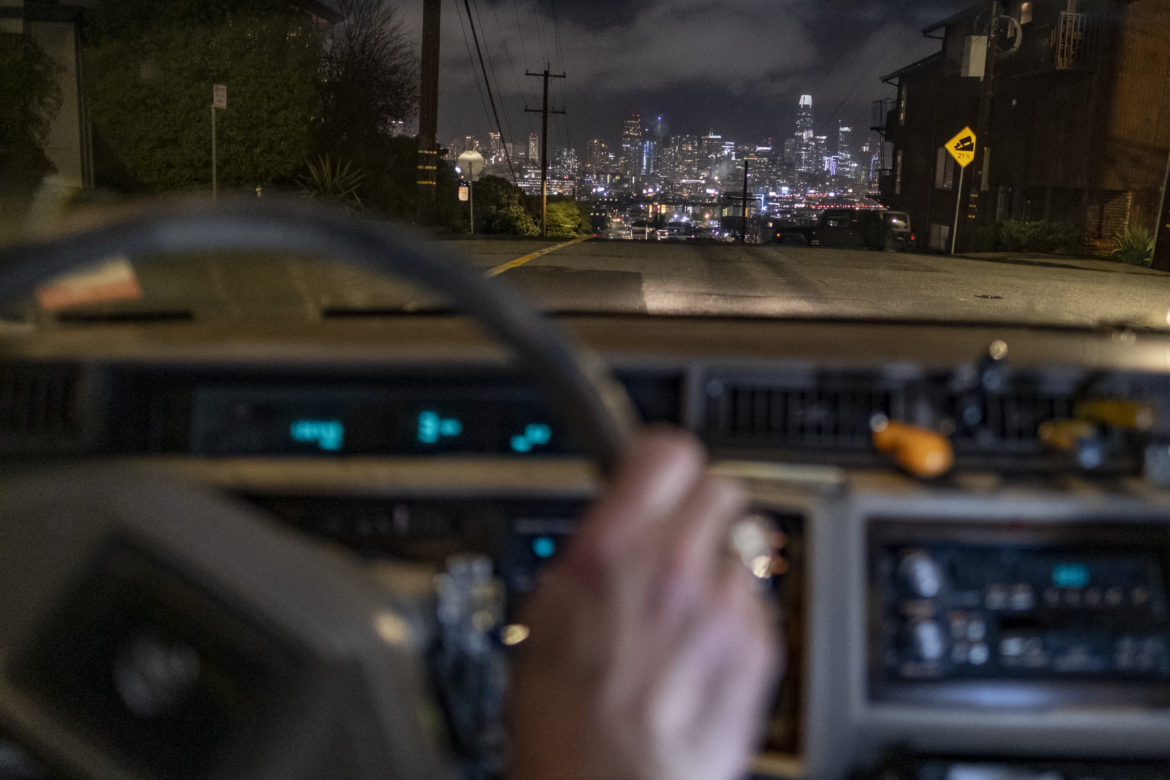
Yesica Prado / San Francisco Public Press and CatchLight Local
Nelson drives down the hill to the tow yard on a Saturday night to prepare for laundry and other chores over the weekend. Every time he moves, he needs to jump-start the Cadillac because bad wiring drains the battery. Sometimes he jumps the Cadillac with his own Lyft car.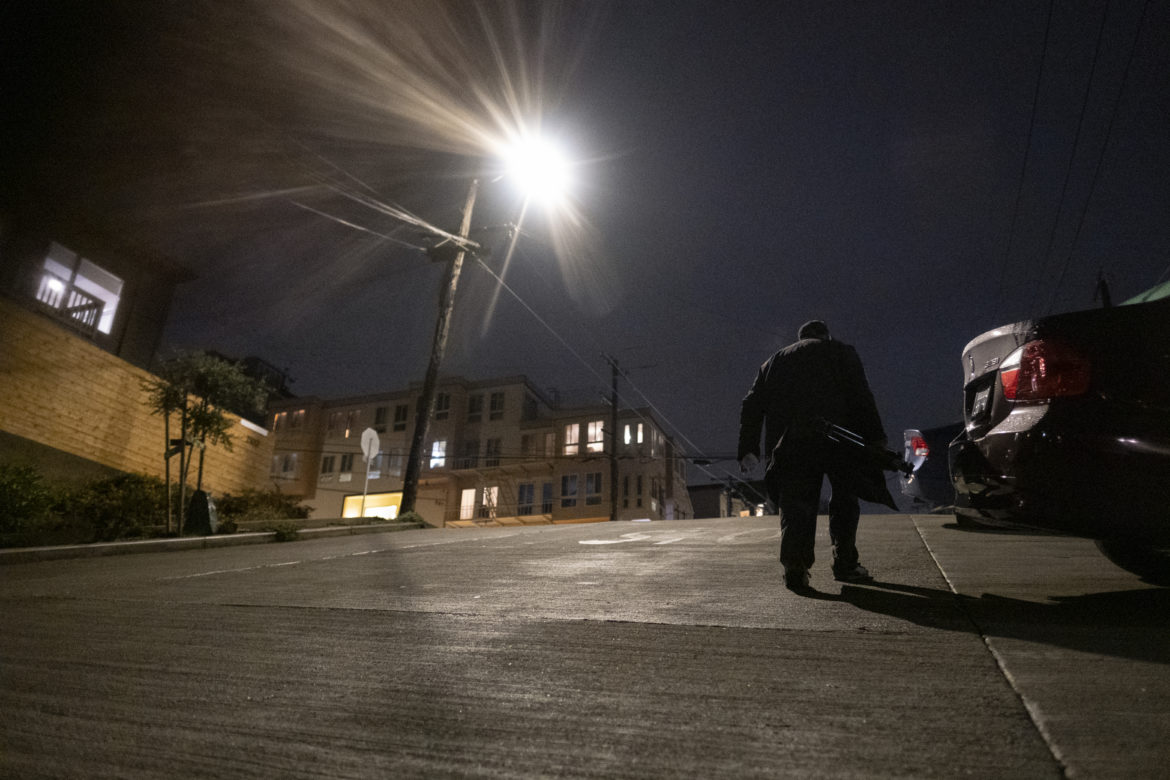
Yesica Prado / San Francisco Public Press and CatchLight Local
Nelson hikes up a steep hill to his vehicle home. He likes to park in Potrero Hill during the week because of the light parking restrictions. But convenience comes at a price: It’s typical for him to make this strenuous trek two or three times a day.This story is part of “Driving Home: Surviving the Housing Crisis” and was produced in collaboration with the Bay Area visual storytelling nonprofit CatchLight through its CatchLight Local Initiative. As a CatchLight Local Fellow at the San Francisco Public Press, Yesica Prado examined the culture of vehicle living in San Francisco and Berkeley. Her fellowship work has been featured by the Yerba Buena Center for the Arts and by the Artists Against an #Infodemic Campaign, which aims to improve access to locally relevant public health information. The CatchLight Local Initiative is funded by the Kresge Foundation, The GroundTruth Project, the Facebook Journalism Project, the Neda Nobari Foundation and the Lisa Stone Pritzker Family Foundation.
